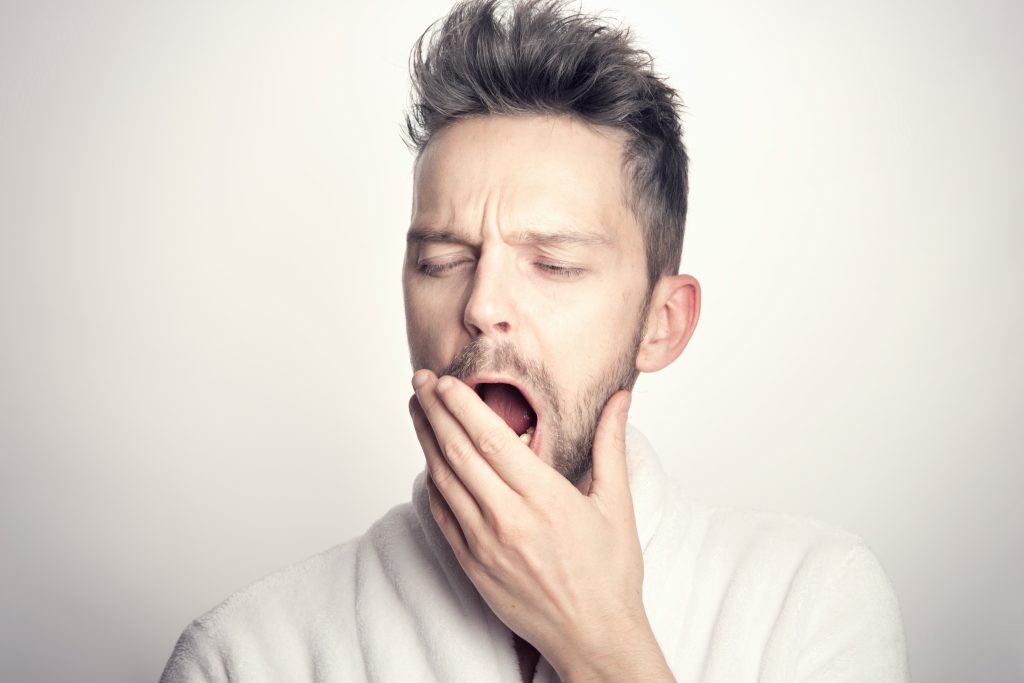Withdrawal is an early warning of addiction
Alcohol is associated with fun, companionship and a feeling of well-being. But that is far from the truth.
In the middle stage of alcoholism, the predictable euphoria of drinking gradually dissipates. The clouds of pain begin to gather, partially obscuring the light and heat of the early-stage alcoholic’s pleasure. Wispy at first, the clouds gather in force until the landscape is heavily shadowed by the end of the middle stage, and the thunderheads begin to roll in, one right after the other.
Middle-stage alcoholics still feel good when they drink, no doubt about that, but life, in general, is not as straightforward as it used to be. Nobody wonders or worries about that fact – after all, the average middle-stage alcoholic is in their thirties and forties, a time when work and family pressures often build up and become overwhelming. Who would think to connect the periodic angry outbursts, recurring anxiety, persistent depression, and general emotional instability with alcohol? Much more likely targets are the demanding boss, the complaining partner, the self-centred kids, or the unrelieved stress of everyday life. Alcohol is a friend, not the enemy – the well-earned reward after a stressful day.
When they begin to appear, the problem seems relatively minor, with no apparent cause-and-effect relationship to drinking. Heated words with the boss, ongoing arguments with the spouse, constant irritation with the kid – so what’s new? Headaches, memory lapses, shaky hands – clear evidence of the nerve-jangling pace of everyday life, right? A strong desire (not yet experienced as a compelling need) for a drink – well, look around, isn’t everyone drinking these days?
Alcohol is considered the hard-earned compensation for a stress-filled existence. Who would deny the busy executive his three martinis after a fifteen-hour workday? Who could argue with the working mother when she says she deserves a few drinks (maybe four or five) after a harried day at work and with the kids? Why shouldn’t the exhausted carpenter, the stressed-out stockbroker, and the brain-fatigued professor celebrate the end of the day with a few strong belts at the local pub?
Middle-stage alcoholics don’t miss work because of drinking, they don’t go home early because of a hangover, and they don’t neglect their family obligations – at least not very often. They don’t drink half a bottle of scotch a day, they don’t drink in the morning (or even necessarily at lunch), and they don’t drink cheap booze wrapped up in a paper bag. They don’t get drunk every night, pick fights at bars, beat up on their kids when they are loaded, or complain about pink elephants dancing around the room. Sure, they get hangovers, sometimes they don’t feel like getting out of bed for work, and every once in a while, they go overboard and drink too much – but, really, how abnormal is that?

Withdrawal: the beginning of serious problems
“It is as if a coiled spring were suddenly released,” says Jerome Levin, PhD, of the withdrawal syndrome. The syndrome begins when the blood alcohol concentration starts to descend. Most people think that withdrawal occurs when alcohol is completely eliminated from the bloodstream, but eh addicted bran begins to call out its misery long before its alcohol bath is completely drained. The brain cells require a specific amount of the drug to feel good; when that level begins to drop, the pain and misery of withdrawal begin. Thus, you can be in withdrawal while you are still intoxicated – even when your blood alcohol level is high enough to qualify you as legally drunk.
In the early and middle stages, withdrawal is often subtle, and the symptoms seem to bear little or no relationship to excess drinking:
- Anxiety
- Irritability
- Tremours
- Nervousness
- Weakness
- Insomnia
- Gastrointestinal distress
- Loss of appetite
- Elevated blood pressure
- Exaggerated reflexes (hyperreflexia)
Henri Paul, the driver of the Mercedes that crashed in Paris in August 1997, killing Princess Diana and Dodi Fayed, was legally drunk when he got behind the wheel. Three separate blood tests confirmed his blood alcohol concentration exceeded the legal limit three times over. Yet it also seems clear that Paul was in withdrawal, for he had been called back to work two hours before he got into the Mercedes, and for much of that time, he was under the surveillance of the hotel’s security cameras. Although an employee at the Ritz allegedly told reporters that Paul had a few drinks at the hotel’s bar that night, there seems to be little doubt that Paul did most of his drinking before he returned to the hotel – at least two or three hours before he started driving. Paul was drunk and in withdrawal – both facts sealed his doom and the fate of his passengers.
The strange truth that alcoholics are often in worse shape when their blood alcohol concentration is descending than when it is at its highest level is a tricky point to grasp. After all, isn’t alcohol itself the culprit? Logically it would seem that the higher your blood alcohol concentration, the worse off you should be. Although this is typically the case for nonalcoholics, in alcoholics, different physiological reactions occur. The cells of the central nervous system have adapted to alcohol, leading to the ability to function “normally” even in the presence of large amounts of the drug. With these adaptations, the addicted cells need alcohol to carry on their regular duties. When alcohol is withdrawn, the cells become fragile and unbalanced.
The withdrawal symptom represents a state of hyperexcitability, or extreme agitation, in the central nervous system. The brain cells, which have reached a state of equilibrium when alcohol is present in sufficient quantities, cry out for more when alcohol is withdrawn. The withdrawal syndrome is proof that you are physically dependent on (or addicted to) alcohol.
If you can relate to such symptoms, reach out to a therapist who can help with safe, medically supervised withdrawal and prevent relapse with therapy – now available at your home!
If you or a loved one is struggling with an addiction, call Freephone 0800 140 4044
Freephone: 0800 140 4044
Local rate: 0300 330 3040

